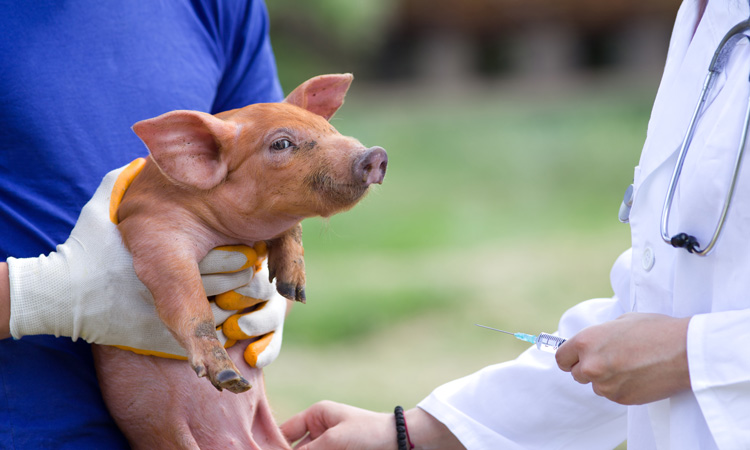CFS calls on the USDA FSIS to strengthen the National Residue Program
- Like
- Digg
- Del
- Tumblr
- VKontakte
- Buffer
- Love This
- Odnoklassniki
- Meneame
- Blogger
- Amazon
- Yahoo Mail
- Gmail
- AOL
- Newsvine
- HackerNews
- Evernote
- MySpace
- Mail.ru
- Viadeo
- Line
- Comments
- Yummly
- SMS
- Viber
- Telegram
- Subscribe
- Skype
- Facebook Messenger
- Kakao
- LiveJournal
- Yammer
- Edgar
- Fintel
- Mix
- Instapaper
- Copy Link
Posted: 10 December 2019 | Sam Mehmet (New Food) | No comments yet
CFS has argued that the National Residue Program does not test for all the veterinary drugs that may be used in food animals, which is said to be insufficient to “protect the health and welfare of consumers” as required by federal law.


The consumer advocacy group Center for Food Safety (CFS) has asked the USDA’s Food Safety and Inspection Service (FSIS) to strengthen the National Residue Program (NRP), so that consumers can all enjoy a safer food supply free of antibiotic residues.
The NRP is an interagency programme administered by FSIS designed to identify, rank, and analyse for chemical contaminants in meat, poultry and egg products. While the NRP tests for veterinary drug residues, CFS has argued that it does not test for all the veterinary drugs that may be used in food animals.
The more consumers are exposed to antibiotics — whether it is through the meat they eat or the medicines they take — the less effective those antibiotics are said to be at fighting the next generation of bacterial infections, as the bacteria evolve into “superbugs” with increased resistance to antibiotics.
The NRP is said to be based on outdated tolerance level standards that were set by the US Food and Drug Administration (FDA), rather than what testing methods are now capable of measuring. If drug residues are found on animal tissue at levels below these outdated thresholds, NRP’s testing protocol will falsely classify that tissue as “negative” and without drug residue present, according to CFS. This negative/positive binary testing system based on FDA’s tolerance levels is said to be insufficient to “protect the health and welfare of consumers” because it ignores the fact that FSIS is capable of detecting drug residues at much lower levels.
“FSIS is using an outdated residue testing programme that is failing to properly identify the presence of pharmaceuticals in our meat supply,” said Ryan Talbott, Staff Attorney at CFS. “The agency needs to update its testing techniques to provide for the lowest limits of detection and it needs to make information about all detected drug residues in meat available to the public,” he continued.
For example, FDA reportedly set its tolerance for the pharmaceutical ractopamine — a feed additive to promote leanness in pigs — at 150 parts per billion for liver and 50 parts per billion for muscle. FSIS then allegedly set its minimum level of applicability for detecting ractopamine at 75 parts per billion (liver) and 25 parts per billion (muscle). CFS’ petition also noted that FSIS should institute a reporting mechanism to make all detected residue levels on meat, poultry and egg samples available to regulatory agencies and the public annually, which the current system lacks.
“The meat industry’s overreliance on these drugs is a symptom of our fundamentally-broken industrial food system that strives to produce the most meat, the fastest — at the expense of food safety and antibiotic resources that are critical to our survival,” said Talbott. “If meat companies are derailed by FSIS using the latest technology to show us what pharmaceutical drugs are really lurking in our food, we would all be better off if those companies started raising livestock and poultry without any.”
Related topics
Food Safety, Health & Nutrition, Quality analysis & quality control (QA/QC), Research & development, Supply chain, The consumer
Related organisations
Center for Food Safety (CFS), The US Department of Agriculture’s Food Safety and Inspection Service (FSIS), The US Food and Drug Administration (FDA)








